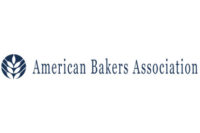Private-label products are more popular and quality, price and value are also critical, according to a SymphonyIRI study.
In c-stores, price promotions can drive snack sales, at least in this economy. Consumers are seeking out and responding to savings. But snacks can also get personal, meaning that a host of issues such as overall quality and branding can stir the pot of loyalty.
Stores struggle to keep prices low, but they also need to make promotions special and, as with private-label products, focus on quality to the point where consumers can expect quality and value. But all of that’s easier said than done.
According to analysts at SymphonyIRI Group, Chicago, recent research pinpoints what role price plays in consumers’ choices of snacks: Nearly 76% of consumers actively shop for the best value when buying them; despite the continued down economy, consumers show an affinity for their favorite brands; and roughly 43% of consumers will compromise on nutritional value to save money.
But cheaper isn’t always better, says Jim Monroe, director of foodservice for Handee Marts Inc., a 7-Eleven licensee that operates 63 stores in Gibsonia, Pa. “The snack market is maturing, but quality is always paramount. There is a place for private-label, which is doing successfully with 7-Eleven’s7-Selectline, but it isn’t necessarily about price. It’s quality. Some of these things are selling pretty well, and we’re not doing any promotions on them because they are top quality.”
The profit margin on private-label snack products is good, but they also carry a substantially lower retail price than national brands. As volume improves, sales may appear to be dipping. “But in actuality, profitability is increasing,” Monroe adds. “You have to pay close attention to margin contributions in addition to sales.”
Source: www.csdecisions.com
Get our new eMagazine delivered to your inbox every month.
Stay in the know on the latest snack and bakery industry trends.
SUBSCRIBE TODAY!Copyright ©2024. All Rights Reserved BNP Media.
Design, CMS, Hosting & Web Development :: ePublishing



